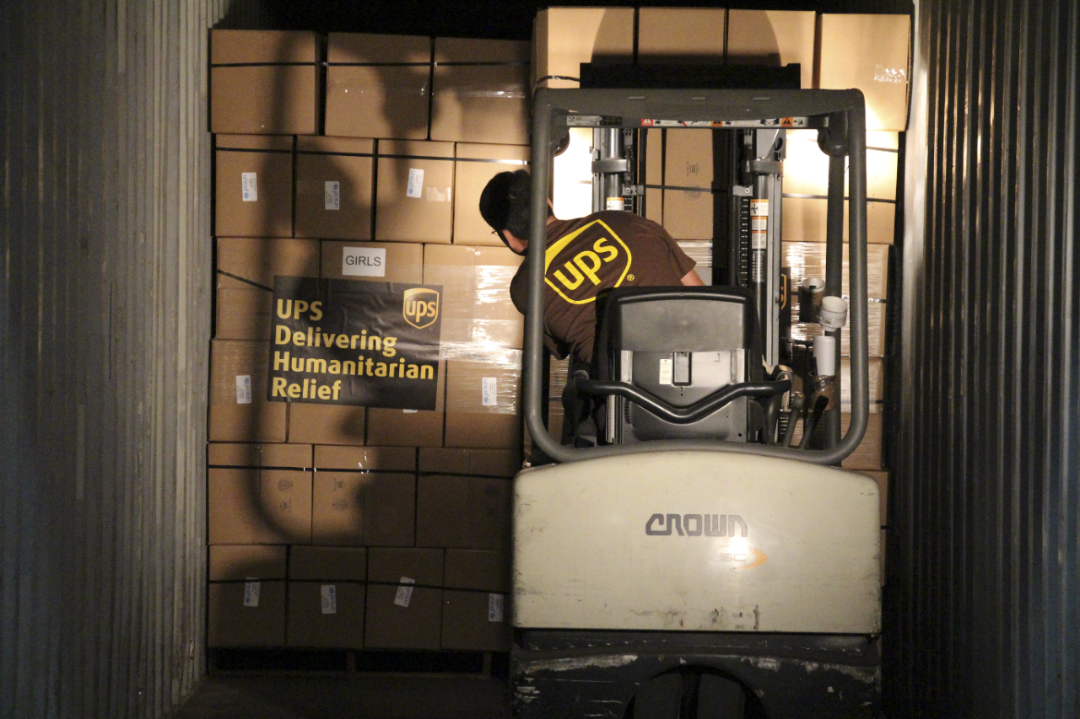Building Resilience & Preparedness Worldwide
When disasters strike, communities need all hands on deck to respond.

When disasters strike, communities need all hands on deck to respond. Private-sector companies can provide important resources, including warehouses, fuel, and other assets. But without a way for businesses to communicate what they can offer and emergency responders to share what they need, valuable resources may go underutilized.
UPS is helping change that by participating in a number of initiatives that connect the private sector with organizations in their communities responsible for emergency preparedness and response. We are one of four global logistics companies that comprise Logistics Emergency Teams (LET), which provide expertise and response services to the Global Logistics Cluster of the United Nations led by the World Food Programme. LET companies provide pro bono assets and services and deploy highly-trained experts to join the United Nations staff in disaster areas. Since 2007, UPS has deployed responders to more than a dozen countries to catalog and leverage private-sector resources to benefit the communities they occupy. In 2017, five UPSers participated in LET training in Dubai, focused on building resilience in the Indian Subcontinent, Middle East, and Africa (ISMEA) region.
We are part of a special public-private partnership in Turkey, a country that is highly vulnerable to disasters such as earthquakes and landslides, and is also home to the largest refugee population in the world. Sağlam KOBI, or the Business Disaster Resilience program, was established by The UPS Foundation, World Economic Forum, Corporate Social Responsibility Association of Turkey, and the U.S. Chamber of Commerce Foundation. It works to adapt existing disaster preparedness techniques and tools available in the U.S. for the Turkish business community, providing training and disaster awareness communications. The UPS Foundation and other partners stepped up these efforts in 2017 with a new Resilient Business Platform that will connect the private sector more strategically into disaster management and humanitarian action. A similar resilience-building program has been launched in Mexico, with plans to expand to Vietnam.
UPS is doing more than coordinating efforts between organizations. We are sharing our own expertise through the Humanitarian Experts on Mission Program, through which we place UPS logistics experts on long-term assignment to our partner organizations to help the organizations build capacity. For example, UPS managers apply their extensive healthcare, engineering, and customer solutions experience to develop strategies for governments in Africa in partnership with Gavi and The Global Fund to Fight AIDS, Tuberculosis and Malaria. Will Alterman, a UPS Automotive Fleet Manager, has completed his mission with the United Nations High Commissioner for Refugees (UNHCR). While on assignment, Alterman leveraged his experience and expertise in auto fleet management to enhance UNHCR’s regional truck fleet across eastern Africa, enhancing their operational capabilities to mobilize support for refugees and internally displaced people in conflict areas.

